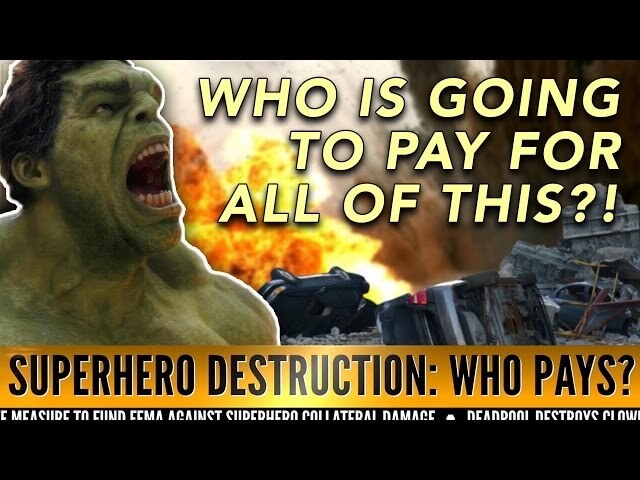Who pays to clean up after superheroes?

Another superhero epic premieres, and another debate rises about who’s responsible for picking up the pieces. After Man Of Steel, it was revealed that the destruction to Metropolis would have been worse than 9/11, with an estimated $2 trillion in damages (and a large number of people wounded, killed, or missing following the climactic fight). Similarly, The Avengers’ final battle of New York City would’ve cost $160 billion in damages (and again, large swaths of injuries, deaths, and disappearances). This question of who foots the bill for these superpowered tussles frequently arises as large-scale disasters explode on the screen. It even seems to be a crux of the plot for the upcoming Captain America: Civil War, as the debate looms over who is in charge of these superbeings and who bears responsibility for their destructive actions (even if they are done in the name of “justice”).








































